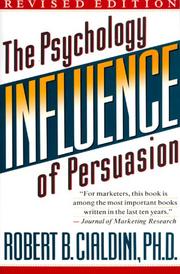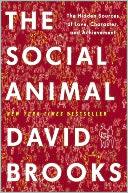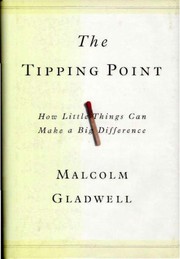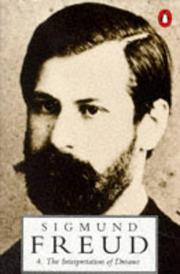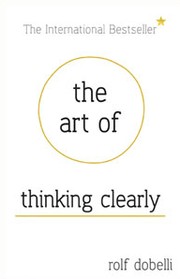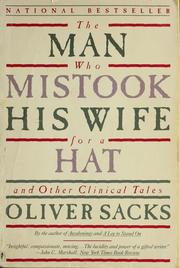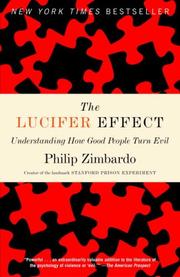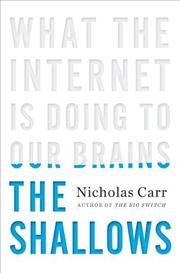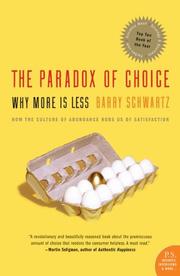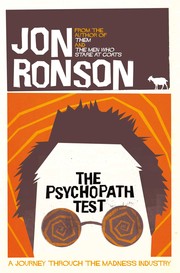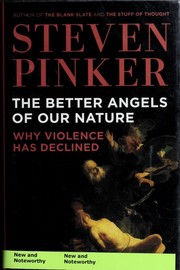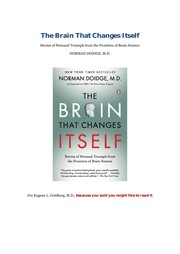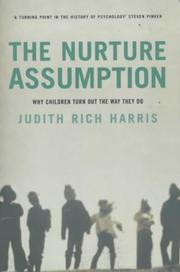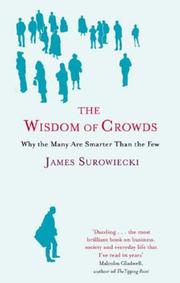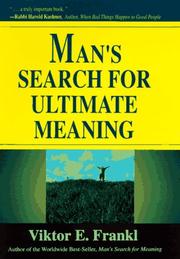Are you fascinated by the complexities of human nature and behavior? Do you enjoy delving into the depths of the human psyche through the written word? If so, you’re in for a treat. In this article, we’ve curated a list of the 20 best books about human nature and behavior that will captivate your mind and stir your curiosity. From insightful explorations of the human mind to thought-provoking analyses of societal behavior, these books offer a profound understanding of what makes us tick. Whether you’re a psychology enthusiast, a sociology buff, or simply someone intrigued by the intricacies of human nature, these books are sure to enlighten and entertain. So, without further ado, let’s dive into the fascinating world of human nature and behavior books.
Contents
- 1 20 Best Human Nature And Behavior Books
- 2 Sapiens: A Brief History of Humankind
- 3 Thinking, Fast and Slow
- 4 The Power of Habit: Why We Do What We Do in Life and Business
- 5 Influence: The Psychology of Persuasion
- 6 The Social Animal: The Hidden Sources of Love, Character, and Achievement
- 7 Predictably Irrational: The Hidden Forces That Shape Our Decisions
- 8 The Righteous Mind: Why Good People Are Divided by Politics and Religion
- 9 The Tipping Point: How Little Things Can Make a Big Difference
- 10 The Interpretation of Dreams
- 11 The Art of Thinking Clearly
- 12 The Man Who Mistook His Wife for a Hat
- 13 The Lucifer Effect: Understanding How Good People Turn Evil
- 14 The Shallows: What the Internet Is Doing to Our Brains
- 15 The Paradox of Choice: Why More Is Less
- 16 The Psychopath Test: A Journey Through the Madness Industry
- 17 The Better Angels of Our Nature: Why Violence Has Declined
- 18 The Brain That Changes Itself: Stories of Personal Triumph from the Frontiers of Brain Science
- 19 The Nurture Assumption: Why Children Turn Out the Way They Do
- 20 The Wisdom of Crowds
- 21 Man’s Search for Meaning
- 22 Final Thoughts on Best Human Nature And Behavior Books
- 23
20 Best Human Nature And Behavior Books
Sapiens: A Brief History of Humankind
by Yuval Noah Harari
Sapiens: A Brief History of Humankind by Yuval Noah Harari is a captivating exploration of the evolution of Homo sapiens from hunter-gatherers to the dominant species on the planet. With a keen focus on the interplay between biology and culture, Harari delves into the origins of human societies, the development of language, and the formation of belief systems. This insightful book on human nature and behavior challenges conventional wisdom and offers thought-provoking perspectives on the forces that have shaped human history.
Harari’s narrative is not just a retelling of historical events, but a compelling analysis of the cognitive, social, and technological revolutions that have defined our species. Through a blend of anthropology, biology, and history, Sapiens presents a compelling argument for how our species has come to dominate the Earth, and what the future may hold for Homo sapiens. This book about human nature and behavior is a must-read for anyone interested in understanding the complexities of the human experience.
Thinking, Fast and Slow
by Daniel Kahneman
Thinking, Fast and Slow by Daniel Kahneman is a fascinating exploration of the dual systems that drive the way we think and make decisions. This groundbreaking book delves into the complexities of the human mind, offering insights into the two modes of thinking: the fast, instinctive, and emotional system, and the slow, deliberate, and logical system. Kahneman, a Nobel Prize-winning psychologist, takes readers on a journey through the quirks and biases of the human brain, shedding light on our tendency to rely on intuition and heuristics, and the errors and misjudgments that result from these cognitive shortcuts.
With a blend of psychology, behavioral economics, and neuroscience, this book provides a thought-provoking look at the intricate workings of the mind and the many factors that influence our decision-making processes. Whether you’re a psychology enthusiast or simply curious about the inner workings of the human mind, Thinking, Fast and Slow offers a compelling and eye-opening exploration of human nature and behavior.
The Power of Habit: Why We Do What We Do in Life and Business
by Charles Duhigg
The Power of Habit by Charles Duhigg is a compelling book on human nature and behavior that delves into the science behind habits and how they shape our lives, both personally and professionally. Duhigg explores the neurological pathways that form habits and the ways in which they can be changed, providing valuable insight into how individuals and organizations can harness the power of habits to achieve success.
Through engaging anecdotes and thorough research, Duhigg illustrates how habits impact everything from our health and productivity to the success of businesses and the functioning of societies. He offers practical strategies for identifying and altering habits, empowering readers to take control of their behavior and make lasting changes.
Whether you’re interested in personal development or seeking to understand the inner workings of human nature and behavior, this book offers a fascinating and enlightening exploration of the power of habits and their influence on our lives.
Influence: The Psychology of Persuasion
by Robert B. Cialdini
Influence: The Psychology of Persuasion by Robert B. Cialdini is a captivating book on human nature and behavior that explores the psychological principles behind why people say “yes” and how to apply these principles ethically in various situations. Cialdini delves into the art of persuasion and uncovers the six universal principles of influence that guide human behavior: reciprocity, commitment and consistency, social proof, authority, liking, and scarcity. Using real-life examples and scientific research, he demonstrates how these principles can be used to influence others, whether in sales, marketing, or everyday interactions. This book about human nature and behavior is not only insightful but also practical, providing valuable insights into the mechanisms of persuasion and how to defend oneself against manipulation. Readers will gain a deeper understanding of the forces that shape their decisions and the decisions of those around them, making Influence a must-read for anyone interested in the fascinating world of influence and persuasion.
The Social Animal: The Hidden Sources of Love, Character, and Achievement
by David Brooks
The Social Animal by David Brooks is a captivating exploration of the complexities of human nature and behavior. Through the story of a fictional couple, Brooks delves into the hidden sources of love, character, and achievement, offering profound insights into the forces that shape our lives. This book is not just a book about human nature and behavior, but a compelling narrative that combines science, sociology, and psychology to provide a deep understanding of the human experience.
Brooks masterfully weaves together research and storytelling to illustrate how our unconscious mind, emotions, and social connections influence our decisions and relationships. With a thought-provoking blend of personal anecdotes and scientific evidence, The Social Animal offers a fresh perspective on the intricacies of human behavior and the factors that drive our actions. Whether you are interested in psychology, sociology, or simply enjoy a well-crafted narrative, this human nature and behavior book is sure to leave a lasting impression.
Predictably Irrational: The Hidden Forces That Shape Our Decisions
by Dan Ariely
Predictably Irrational: The Hidden Forces That Shape Our Decisions by Dan Ariely is a captivating exploration of the quirks and biases that influence our decision-making. In this insightful book on human nature and behavior, Ariely, a behavioral economist, delves into the fascinating world of irrationality and how it impacts our choices in all aspects of life.
Through engaging experiments and real-life examples, Ariely uncovers the hidden forces that drive our behavior, from the irrationality of our shopping habits to the surprising ways in which we value and perceive the world around us. He challenges the traditional notion of rational decision-making and offers a fresh perspective on the complexities of human nature and behavior.
With wit and wisdom, Predictably Irrational invites readers to question their assumptions about their own decision-making processes and gain a deeper understanding of the psychological factors that shape our choices. This thought-provoking book about human nature and behavior is a must-read for anyone interested in unraveling the mysteries of the human mind.
The Righteous Mind: Why Good People Are Divided by Politics and Religion
by Jonathan Haidt
The Righteous Mind by Jonathan Haidt is a thought-provoking book on human nature and behavior that delves into the psychological roots of our political and religious divisions. Haidt, a social psychologist, explores the moral foundations that drive our decision-making processes, arguing that our moral intuitions are the primary drivers of our beliefs and actions. He introduces the concept of “moral taste buds” to explain how people from different ideological backgrounds perceive moral issues in fundamentally different ways.
Through engaging storytelling and compelling research, Haidt challenges readers to reconsider their assumptions about morality and empathy, offering a new framework for understanding the complexities of human nature and behavior. The book provides valuable insights into the origins of our moral and political beliefs, shedding light on the roots of our societal divides.
Whether you’re interested in psychology, political science, or sociology, The Righteous Mind offers a fascinating exploration of the forces that shape our moral reasoning and decision-making, making it a must-read for anyone curious about the intricacies of human nature and behavior.
The Tipping Point: How Little Things Can Make a Big Difference
by Malcolm Gladwell
The Tipping Point: How Little Things Can Make a Big Difference by Malcolm Gladwell is a fascinating book on human nature and behavior. Gladwell explores the concept of the tipping point, the moment when an idea, trend, or behavior crosses a threshold and spreads like wildfire. Through engaging stories and compelling research, Gladwell delves into the factors that contribute to the tipping point, such as the role of connectors, mavens, and salesmen in social epidemics.
With his signature blend of storytelling and analysis, Gladwell uncovers the small, seemingly insignificant factors that can lead to major shifts in society. He examines real-life examples, from the rise of Hush Puppies shoes to the spread of syphilis in Baltimore, to illustrate how little things can have a big impact on human nature and behavior. The Tipping Point is a thought-provoking and insightful read that sheds light on the dynamics of social change and the forces that shape our world.
The Interpretation of Dreams
by Sigmund Freud
The Interpretation of Dreams by Sigmund Freud is a groundbreaking book on human nature and behavior. Published in 1899, Freud’s work revolutionized the way we understand the human mind and the motivations behind our actions. In this influential text, Freud delves into the unconscious mind, exploring the significance of dreams and their interpretation. He argues that dreams are a window into our deepest desires, fears, and conflicts, shedding light on the complexities of human nature and behavior.
Freud’s exploration of the unconscious and his theory of dream interpretation have had a profound impact on psychology, literature, and popular culture. His ideas have sparked countless debates and inspired further research into the mysteries of the human psyche. The Interpretation of Dreams remains a timeless and essential read for anyone interested in delving into the depths of the human mind and gaining a deeper understanding of human nature and behavior.
The Art of Thinking Clearly
by Rolf Dobelli
The Art of Thinking Clearly by Rolf Dobelli is a fascinating exploration of the quirks and biases that affect our decision-making processes. This insightful book delves into the intricacies of human nature and behavior, shedding light on the common errors and misconceptions that often lead us astray. Dobelli’s engaging writing style and real-life examples make the book an entertaining and enlightening read for anyone interested in understanding the complexities of the human mind.
With a keen focus on cognitive errors and logical fallacies, The Art of Thinking Clearly offers valuable insights into how our minds work and how we can become more aware of our thought processes. By uncovering the psychological tendencies that influence our choices, Dobelli provides readers with practical strategies for improving their decision-making skills and avoiding common pitfalls. Whether you’re a psychology enthusiast or simply curious about the intricacies of human nature and behavior, this book is sure to expand your understanding of the way we think and act.
The Man Who Mistook His Wife for a Hat
by Oliver Sacks
The Man Who Mistook His Wife for a Hat by Oliver Sacks is a fascinating exploration of the complexities of the human mind. This captivating book delves into the intricacies of the brain and its impact on human behavior. Through a series of intriguing case studies, Sacks presents a thought-provoking look at the ways in which neurological conditions can profoundly affect individuals’ perceptions and interactions with the world around them.
With a blend of empathy and scientific insight, Sacks delves into the lives of his patients, offering a deep and compelling understanding of the human psyche and its abilities, challenges, and idiosyncrasies. The book on human nature and behavior sparks discussions about the delicate balance between the brain’s intricate workings and the essence of what makes us human. With a blend of compassion and intellect, Sacks offers a captivating exploration of the mysteries of the human mind, making this book a must-read for anyone intrigued by the complexities of the human condition.
The Lucifer Effect: Understanding How Good People Turn Evil
by Philip Zimbardo
The Lucifer Effect: Understanding How Good People Turn Evil is a captivating exploration of the darker side of human nature and behavior. Written by renowned psychologist Philip Zimbardo, this thought-provoking book delves into the psychological mechanisms that can lead ordinary individuals to commit heinous acts. Zimbardo draws on his famous Stanford Prison Experiment and other real-life examples to illustrate how situational factors and social influence can override a person’s inherent morality, leading them to engage in destructive behaviors.
Through his in-depth analysis, Zimbardo sheds light on the complexities of human nature and behavior, challenging readers to confront the uncomfortable truth about the potential for evil within all of us. The book offers valuable insights into the impact of authority, group dynamics, and moral disengagement, providing a compelling examination of the factors that contribute to the transformation of good people into perpetrators of evil. The Lucifer Effect is an eye-opening and essential read for anyone interested in understanding the darker aspects of human nature and behavior.
The Shallows: What the Internet Is Doing to Our Brains
by Nicholas Carr
The Shallows: What the Internet Is Doing to Our Brains by Nicholas Carr is a thought-provoking book on human nature and behavior in the digital age. Carr explores the impact of the internet on our cognitive abilities, attention spans, and overall thinking processes. Drawing on neuroscience and psychology, he argues that the constant barrage of information and distractions online is rewiring our brains, leading to a shallower, more scattered way of thinking.
By delving into the history of technology and its effects on the human mind, Carr challenges readers to consider the long-term consequences of our digital habits. He highlights the importance of deep, focused thinking and raises concerns about the potential loss of this essential skill in the age of constant connectivity. The book serves as a wake-up call for individuals and society to reassess our relationship with technology and its impact on our human nature and behavior. Carr’s compelling narrative and well-researched arguments make The Shallows a must-read for anyone interested in the intersection of technology and human nature and behavior.
The Paradox of Choice: Why More Is Less
by Barry Schwartz
The Paradox of Choice: Why More Is Less by Barry Schwartz is a thought-provoking book about the impact of having too many choices on human behavior. Schwartz delves into the concept of decision-making and how the abundance of options can lead to anxiety, dissatisfaction, and even paralysis. He argues that while we may think that more choices lead to greater freedom and happiness, they often result in increased stress and a decreased sense of well-being. This book explores the psychological and sociological effects of the overwhelming array of choices that modern society presents, offering valuable insights into the human psyche.
With compelling examples and research, Schwartz challenges readers to reconsider their assumptions about the benefits of endless options. The book provides a fascinating exploration of the complexities of decision-making and the impact of choice on our lives. It’s a must-read for anyone interested in understanding the nuances of human nature and behavior, and the ways in which our choices shape our experiences.
The Psychopath Test: A Journey Through the Madness Industry
by Jon Ronson
The Psychopath Test: A Journey Through the Madness Industry by Jon Ronson is a captivating exploration of the enigmatic world of psychopathy and its diagnosis. In this thought-provoking book on human nature and behavior, Ronson delves into the controversial and often misunderstood subject of psychopathy, taking readers on a fascinating journey through the madness industry. Through a series of riveting interviews with psychologists, psychiatrists, and individuals who have been labeled as psychopaths, Ronson skillfully unravels the complexities of human nature and behavior, shedding light on the elusive concept of psychopathy and its impact on society. With his signature wit and insight, Ronson delves into the ethical dilemmas surrounding the diagnosis of psychopathy and its implications for our understanding of human nature and behavior. The Psychopath Test is a compelling and thought-provoking exploration of the human condition, offering readers a unique perspective on the intricacies of human nature and behavior.
The Better Angels of Our Nature: Why Violence Has Declined
by Steven Pinker
The Better Angels of Our Nature: Why Violence Has Declined is a fascinating book on human nature and behavior by Steven Pinker. In this thought-provoking work, Pinker explores the history of violence and makes a compelling argument that, despite the prevalent belief in the opposite, violence has actually decreased over time. Drawing on a wide range of historical, psychological, and sociological evidence, Pinker delves into the factors that have contributed to this decline, including the rise of organized states, the spread of Enlightenment ideals, and the development of empathy and reason.
Pinker’s engaging writing style and thorough research make this book about human nature and behavior a compelling read for anyone interested in understanding the complexities of human behavior and the forces that shape our interactions with one another. The Better Angels of Our Nature challenges readers to rethink their assumptions about the prevalence of violence and offers a hopeful perspective on the potential for positive change in our society.
The Brain That Changes Itself: Stories of Personal Triumph from the Frontiers of Brain Science
by Norman Doidge
The Brain That Changes Itself is a groundbreaking book on neuroplasticity, the brain’s ability to rewire and adapt throughout life. Norman Doidge takes readers on a fascinating journey through the frontiers of brain science, sharing stories of personal triumph and resilience. Through engaging narratives and compelling research, Doidge demonstrates how the brain can overcome limitations and heal from injury or trauma.
This captivating book about human nature and behavior explores the transformative power of the brain, showing how individuals can retrain their minds to overcome challenges and achieve personal growth. Doidge showcases the remarkable plasticity of the human brain, offering hope and inspiration to readers seeking to understand and harness the potential of their own minds.
The Brain That Changes Itself is a must-read for anyone interested in unlocking the mysteries of the human brain and discovering the incredible capacity for change and adaptation within each of us.
The Nurture Assumption: Why Children Turn Out the Way They Do
by Judith Rich Harris
The Nurture Assumption by Judith Rich Harris is a groundbreaking book on human nature and behavior. Harris challenges the traditional belief that parents are the most influential factor in determining how children turn out. Instead, she argues that genetic influences and peer groups play a much larger role in shaping a child’s personality and behavior.
Through compelling research and thought-provoking analysis, Harris presents a persuasive case for her theory, shedding new light on the nature versus nurture debate. She explores the impact of genetics, cultural influences, and the social environment on child development, offering a fresh perspective on the complex factors that shape human nature and behavior.
This thought-provoking and insightful book about human nature and behavior has sparked widespread discussion and debate, challenging long-held assumptions about the role of parents in child development. Harris’s compelling argument will make readers reconsider their understanding of human nature and behavior, and encourage them to explore the multifaceted influences that contribute to the formation of personality and character.
The Wisdom of Crowds
by James Surowiecki
The Wisdom of Crowds by James Surowiecki is a fascinating book on human nature and behavior that delves into the concept of collective intelligence. Surowiecki argues that under the right circumstances, groups of people can make better decisions and predictions than even the smartest individuals within the group. Drawing on examples from diverse fields such as economics, psychology, and biology, the book explores how the wisdom of crowds emerges and how it can be harnessed for better decision-making in various areas of life.
Surowiecki’s exploration of the dynamics of group behavior and decision-making is both thought-provoking and engaging. Through compelling anecdotes and evidence, he challenges commonly held beliefs about the limitations of group intelligence and offers insights into how harnessing the collective wisdom of a crowd can lead to more accurate outcomes. The Wisdom of Crowds is a thought-provoking and enlightening read that sheds light on the intricacies of human nature and behavior, making it a must-read for anyone interested in understanding the power of collective intelligence.
Man’s Search for Meaning
by Viktor E. Frankl
Man’s Search for Meaning by Viktor E. Frankl is a powerful exploration of the human spirit in the face of unimaginable suffering. The book delves into the author’s experiences as a prisoner in Nazi concentration camps during World War II, where he witnessed and endured the horrors of the Holocaust. Through his harrowing ordeal, Frankl discovered that even in the midst of extreme suffering, individuals can find meaning and purpose in their lives.
This profound and thought-provoking book on human nature and behavior delves into the depths of the human psyche, examining the resilience and capacity for hope that exist within us all. Frankl’s insights into the human condition and the search for purpose resonate with readers on a deeply personal level, offering profound wisdom and inspiration. Man’s Search for Meaning is a timeless testament to the strength of the human spirit and the enduring power of the human will.
Final Thoughts on Best Human Nature And Behavior Books
Exploring the depths of Human Nature And Behavior through literature can be a fascinating and enlightening journey. The 20 best books about human nature and behavior offer profound insights into the complexities of human emotions, motivations, and relationships. Whether you’re interested in psychology, sociology, or simply understanding the human experience, these books provide a rich tapestry of perspectives and knowledge. From classic works to modern masterpieces, these books offer a captivating exploration of what it means to be human.
Which book about Human Nature And Behavior is best?
The best book on Human Nature And Behavior can vary with personal preference, but three widely recommended titles are:
- Sapiens: A Brief History of Humankind by Yuval Noah Harari,
- Thinking, Fast and Slow by Daniel Kahneman,
- The Power of Habit: Why We Do What We Do in Life and Business by Charles Duhigg.
Each offers valuable insights and could be a great starting point.
What are the best books to learn about Human Nature And Behavior?
For those looking to learn about Human Nature And Behavior, there is a wealth of literature that can provide a comprehensive understanding of the subject. Some of the most highly recommended books include:
- Sapiens: A Brief History of Humankind by Yuval Noah Harari,
- Thinking, Fast and Slow by Daniel Kahneman,
- The Power of Habit: Why We Do What We Do in Life and Business by Charles Duhigg,
- Influence: The Psychology of Persuasion by Robert B. Cialdini,
- The Social Animal: The Hidden Sources of Love, Character, and Achievement by David Brooks,
- Predictably Irrational: The Hidden Forces That Shape Our Decisions by Dan Ariely,
- The Righteous Mind: Why Good People Are Divided by Politics and Religion by Jonathan Haidt,
- The Tipping Point: How Little Things Can Make a Big Difference by Malcolm Gladwell,
- The Interpretation of Dreams by Sigmund Freud,
- The Art of Thinking Clearly by Rolf Dobelli
These books offer a range of perspectives on Human Nature And Behavior, covering various aspects and approaches to the subject.
What are the best books about Human Nature And Behavior?
The best books about Human Nature And Behavior are:
- Sapiens: A Brief History of Humankind by Yuval Noah Harari,
- Thinking, Fast and Slow by Daniel Kahneman,
- The Man Who Mistook His Wife for a Hat by Oliver Sacks,
- The Lucifer Effect: Understanding How Good People Turn Evil by Philip Zimbardo,
- The Tipping Point: How Little Things Can Make a Big Difference by Malcolm Gladwell,
- Predictably Irrational: The Hidden Forces That Shape Our Decisions by Dan Ariely.
Each offers unique insights into the subject. While these books about Human Nature And Behavior are highly regarded, it’s important to note that any list of ‘best’ books is subjective and reflects a range of opinions.
What are the best Human Nature And Behavior books of all time?
Choosing the best Human Nature And Behavior books of all time can vary depending on who you ask, but five titles that are often celebrated include
- Sapiens: A Brief History of Humankind by Yuval Noah Harari,
- Thinking, Fast and Slow by Daniel Kahneman,
- The Social Animal: The Hidden Sources of Love, Character, and Achievement by David Brooks,
- The Tipping Point: How Little Things Can Make a Big Difference by Malcolm Gladwell,
- and The Man Who Mistook His Wife for a Hat by Oliver Sacks.
Each of these books has made a significant impact in the field of Human Nature And Behavior and continues to be influential today.




